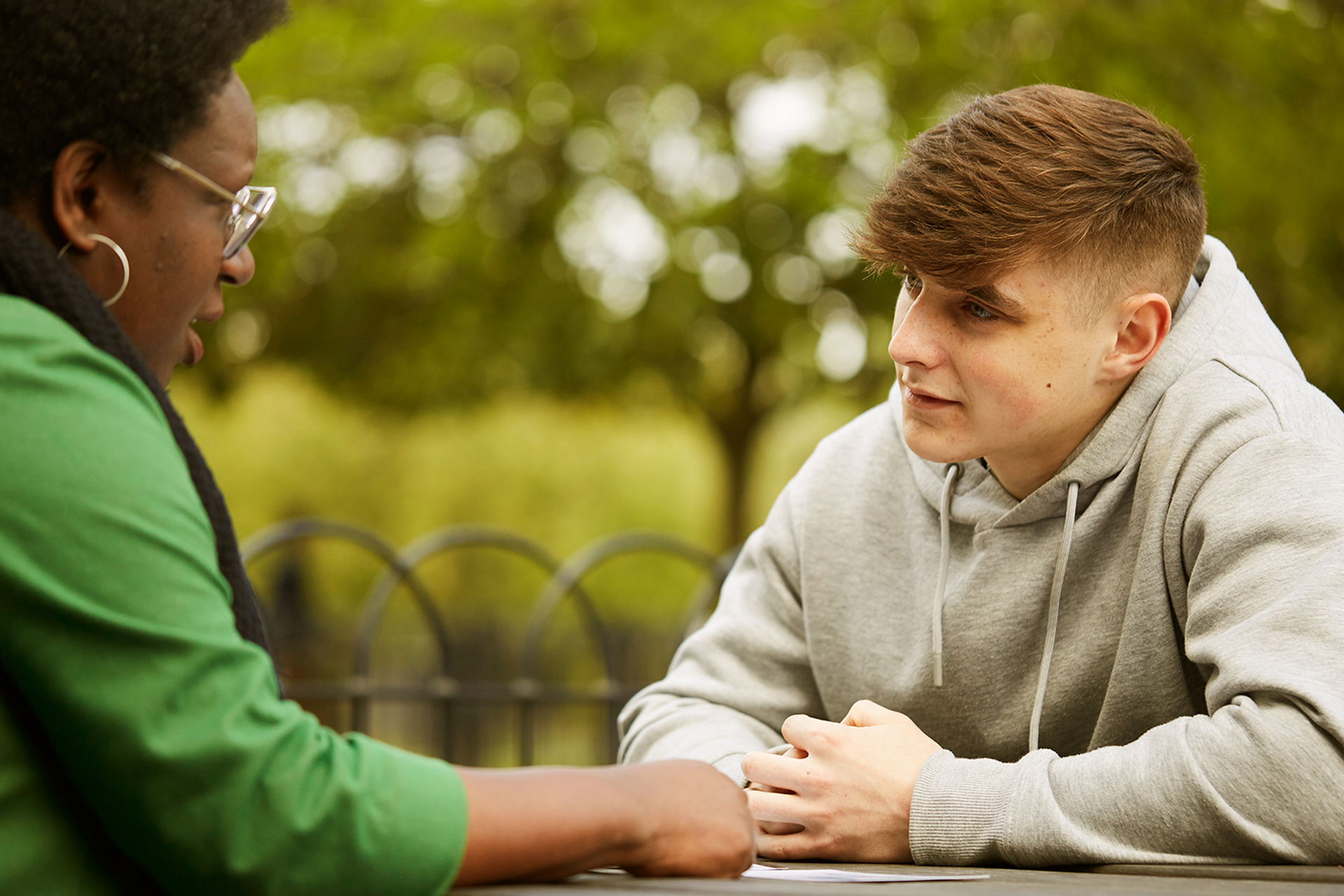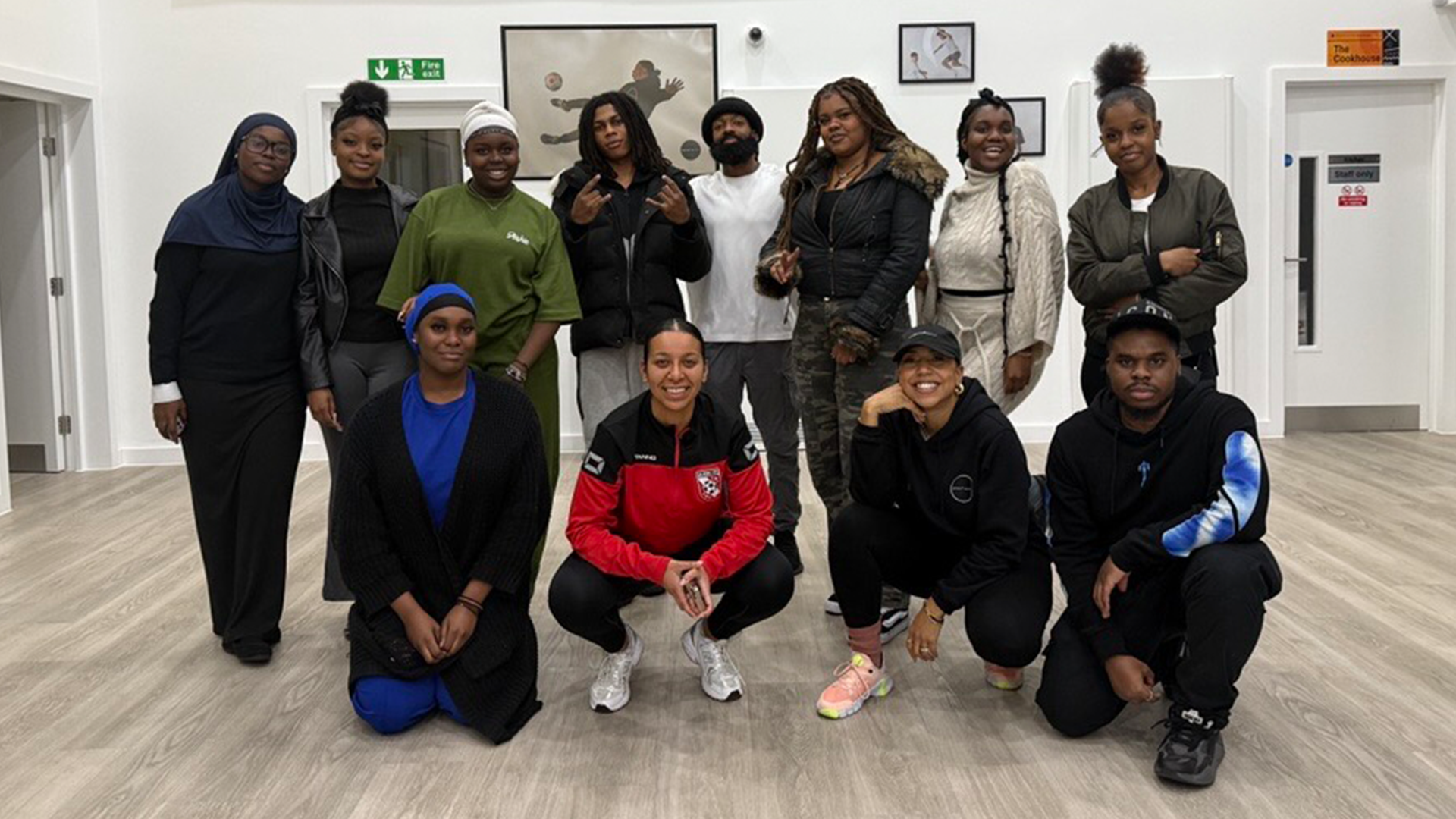PTSD
-
Sometimes trauma can lead to post-traumatic stress disorder (PTSD) or complex post-traumatic stress disorder (C-PTSD). For more information on symptoms and support, check out our PTSD guide.
Going through tough experiences is part of life, and it’s normal to struggle afterwards. Most of the time, we bounce back. But trauma is when something really scary or overwhelming has a lasting impact on your mental health.
Trauma can come from one big event, a series of events, or an ongoing situation. You don’t even have to be directly involved – just witnessing something bad can be traumatic. It’s not always extreme situations like war. Smaller things, like being called ‘stupid’ by a teacher, can leave a big mark if it affects how you see yourself. Trauma can also build up over time, like if someone in your family is constantly putting you down.
Common examples of things that can cause trauma are:
Everyone's experience is different. What feels traumatic to one person might not feel the same to someone else. Your trauma is just as valid as anyone else’s, and no one can tell you what does or doesn’t count.
Everybody reacts to trauma differently, and your feelings might change over time. Right after something traumatic, you might feel:
You might not even realise it was trauma, especially if you don’t feel much or if it’s part of an ongoing situation, like being bullied. Sometimes it takes a while to feel the effects, and that’s totally normal.
If you don’t react at all when something big or scary happens, there’s nothing wrong with you. There’s no ‘right’ way to experience trauma.

Trauma can impact your mental health in lots of ways, making you feel:
Some traumas can change how you see yourself or others. For example, abuse can make you believe negative things about yourself or make it hard to trust people, leaving you feeling isolated or anxious.
You might not even realise the link between a traumatic event and how you’re feeling now. But with help, you can figure it out and start to feel better.
You might notice physical symptoms from trauma, like:
This can feel scary, but they are normal responses to trauma.
Sometimes trauma can lead to post-traumatic stress disorder (PTSD) or complex post-traumatic stress disorder (C-PTSD). For more information on symptoms and support, check out our PTSD guide.
Coping with trauma alone is tough, so let someone know what you’re going through. Talking to someone you trust about what happened can really help. And hearing their perspective might make things clearer. If you don’t feel like you can talk to someone you know, there are lots of helplines and organisations that can help.
If talking about it feels too much, you can get help from your doctor. They won’t push you to share if you’re not ready, but they can help you get the support you need. If you’re nervous about speaking to your GP, bring a friend or family member for support. Our guide can also help.
Some people find it really helpful to talk to others who’ve been through similar things. If you think talking with others could help, there are plenty of support groups out there. You can find these through organisations like:
For some, hearing others’ stories can be upsetting or even set back their recovery. Before listening to others’ traumatic experiences, it’s good to think about how you’ll handle any tough feelings or memories that might come up.
Self-care looks different for everyone, but try to factor in things like:
After trauma, even the everyday stuff like cooking, washing and sleeping can feel exhausting. Setting a routine, like going to bed and eating at the same time each day, can bring some stability and make things feel less overwhelming.
Grounding techniques help you reconnect with the present moment when things get overwhelming. They can shift your focus away from how you feel and back to the ‘here and now’, creating a sense of calm.
Here are some common grounding techniques:
Check out more tips and advice from young people on their favourite grounding techniques:

Amplifying Black young voices
From Trauma to Triumph is the result of the Creators Programme, a collaboration between Mentivity and YoungMinds. Through workshops and honest conversations, young Black people explored issues like intergenerational trauma, societal perceptions, systemic injustice, and knife crime. They used collage, audio, and photography to bring their work to life.
If you're struggling with something traumatic that has happened, you are not alone. Here are some organisations and services that can really help.
If you’re under 19 you can confidentially call, chat online or email about any problem big or small.
Sign up for a free Childline locker (real name or email address not needed) to use their free 1-2-1 counsellor chat and email support service.
Can provide a BSL interpreter if you are deaf or hearing-impaired.
Hosts online message boards where you can share your experiences, have fun and get support from other young people in similar situations.
Offers support to anyone affected by crime; not only those who experience it directly, but also their friends, family and any other people involved.
Live webchat service available.
Offers specialist support for children and young people affected by crime through their website You & Co.
Offers support to adult survivors of all types of childhood abuse, including physical, sexual, emotional abuse or neglect.
LoveRespect is run by Women's Aid.
It provides a safe, anonymous space, for 14-24 year olds to gain more understanding of healthy and unhealthy relationships.
It offers resources for you and your friends if you’re experiencing domestic abuse, including identifying abuse, isolation, asking adults for help, mental health impacts, and more.
The Survivors Trust has 120 member organisations based in the UK & Ireland which provide specialist support for women, men and children who have survived rape, sexual violence or childhood sexual abuse. Find support in your area.
Provides information and support services to people bereaved or seriously injured in road crashes.
Whether you love the page or think something is missing, we appreciate your feedback. It all helps us to support more young people with their mental health.
Please be aware that this form isn’t a mental health support service. If you are in crisis right now and want to talk to someone urgently, find out who to contact on our urgent help page.
At YoungMinds we take your privacy seriously. If you’d like to read more about how we keep the information we collect safe, take a look at our privacy policy.